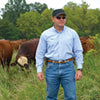April 03, 2020 0 Comments
By Dr. Allen R Williams, Ph.D.
We often think of ourselves as a single organism called a person. However, we are actually made up of a dazzling array of parts (arms, legs, ears, nose, eyes, etc.) and pieces (heart, liver, kidneys, pancreas, stomach, intestines, etc.). Somehow all these parts and pieces function as one intact organism, or so we believe.
There are actually tiny, microscopic organisms that live in our gut, our mouth, our skin and many other places in our bodies. How many? More than 100 trillion of them.
We have more microorganisms living on us and in each of us than the size of our national debt. Together, all these microorganisms are known as the human microbiome and they are ten times more numerous than the number of cells in our body.

It is said that we are actually our own personal ecosystem, and just like damaging the world’s ecosystem has disastrous effects on human life, damaging our personal ecosystem has disastrous effects on our lives and long-term health also.
Just how important are these 100 trillion microbes? Well, take them away and we die. It is that simple. We cannot survive without our personal microbiome.
This personal ecosystem regulates our digestion, our detoxification process, our absorption of nutrients, our brain function, endocrine gland function, organ function, skin function, the synthesis of essential nutrients and vitamins. Our microbiome is intricately linked to every aspect of our health. From heart disease to diabetes to arthritis to obesity to Alzheimer’s.

Depiction of Microbes in the Human Gut
Let me provide just a little more perspective. The human genome is comprised of about 23,000 genes. Our extended genome, or non-human genome, provided by the trillions of microbes living on us and in us, extends our genome by millions of genes. In our gut alone we have more than 40,000 bacterial species with 9 million unique bacterial genes and over 100 trillion microbial cells. We are far more diverse than a rain forest!
Want to lose a quick 5 pounds? Shed all your human microbes and that is what will happen. The only catch is that to lose those 5 pounds we would also lose our life.

Microscopic View of Microbes in Human Gut
Microbes are not only crucial to our personal health but also to the health of the world... from our soil, to our water, to plants, animals, insects, earthworms, and everything imaginable. All these microbes are intricately linked. The soil microbiome is linked to the plant microbiome which is linked to insect and animal microbiomes which are linked to our microbiome. This is an inescapable fact.
Microbes form the vast majority of the world’s biomass. There are 40 million bacterial cells in a single gram of soil and a million bacterial cells in a gram of water. Imagine an elephant standing on every acre. The weight of that elephant equals the weight of soil microbes in just the top six inches of soil on every acre of healthy, highly functioning soil.
Due to the interconnectedness of all these microbiomes, we cannot escape the fact that what we eat, and how that food was produced, including the very soil it was produced in or on, is critically important to the very health of our own personal ecosystem. Only healthy soils can produce truly healthy nutrient dense foods that fuel our human microbiome and create synergies that support a strong immune system.
We now know that the soil microbiome serves as an external plant immune system. One of those classes of soil microorganisms, mycorrhizal fungi, are the principal immune system protecting plants against fungal disease. Over the past three decades, the use of fungicides in agriculture has increased exponentially. This is directly a result of the significant reduction of mycorrhizal fungi in the soil through tillage practices and the use of synthetics and chemicals that damage mycorrhizae. When we damage them and we consume foods from those same soils, we damage our own personal microbiome.
Research conducted by the Max Planck Institute for Chemical Ecology shows that the microbiome is important for the health and development of all living organisms. Results from their studies indicate that the more diverse the diet, the greater the microbial diversity. This accounts for the stability of the plant-soil-animal-human health relationship.
Research conducted by the American Gut Project found that degree of diversity in our diet influences the array of microorganisms present in our gut.
What we eat and the diversity of that diet plays a large role in our overall health and well-being.
One principal factor in all this is the hypothalamic-pituitary-adrenal (HPA) axis. These endocrine glands are the primary responder to stresses that we incur. They influence our limbic system, our emotions, and our memory.
We know that antibiotics can significantly damage favorable bacteria along with the bad. When we have to take antibiotics, we are told to follow that with probiotics or with fermented foods that help replenish favorable gut microbes. We also know that application to the soil of manures from animals that have antibiotics in their system impacts the soil microbiome. What about eating meats from animals fed antibiotics?
There is a distinct link between our gut microbiome composition and our mental health. Research findings from the American Gut Project show that people with reported mental health issues had a specific array of gut bacteria that was distinctly different than people who reported no mental health issues. This association cut across gender, age, and geographical regions. Another recent study found a connection between anxiety and the lack of specific healthy gut microbes. This was true for various mental conditions that included PTSD, Schizophrenia, depression, and bipolar disorder.
How does regenerative agriculture play into all this? It is clear that the microbiomes of the soil, plants, animals, and humans are inextricably linked. Each depends on the other. What we do to one either benefits or harms the other. This is inescapable. Therefore, the way we treat our soil, plants and animals impacts our individual human microbiome. We are a product of our environment and the food we choose to eat.
Do you want a healthy body? A healthy immune system? Do you want to be able to withstand the challenges of something like the coronavirus? Then choose to eat healthy. Choose foods that are produced by regenerative farmers and ranchers, from soils that are biologically active and from animals that are free from antibiotics. Support regenerative agriculture with your food purchase decisions and you are supporting healthy microbiomes. After all, remember that you are eating for trillions!
 Written By Dr. Allen Williams, Ph.D.
Written By Dr. Allen Williams, Ph.D.
A champion of the grass-fed beef industry and the growing Regenerative Agriculture movement, Allen helps restore soil health, increase land productivity, enhance biodiversity, and produce healthier food. Learn more about Allen
October 11, 2024 0 Comments
In the wake of Hurricane Helene's devastation, Asheville’s culinary community is coming together to offer more than just food. From hosting fundraising events to donating meals and resources, these chefs, restaurateurs, and food artisans are playing a vital role in relief efforts, feeding hope to those in need.
August 30, 2024 0 Comments
As consumers become more conscious about the origins of their food, labels on meat and poultry offer reassurance that our choices align with our values. However, new USDA guidelines aimed at strengthening these claims bring a new challenge: balancing trust in these labels with the rising costs of maintaining them, especially for small producers. Explore how these changes could impact the food you choose and the diversity of options available.
August 26, 2024 0 Comments
A look back at our 2021 #CelebrateMeat initiative, meant to challenge the growing calls to cancel meat. By collaborating with chefs, experts, and thought leaders, we showcased how responsibly raised meat is not just good for the planet but also worth celebrating. Reflect on our journey and explore the powerful voices that made this campaign a success.
© 2025 Joyce Farms.
Powered by Shopify
